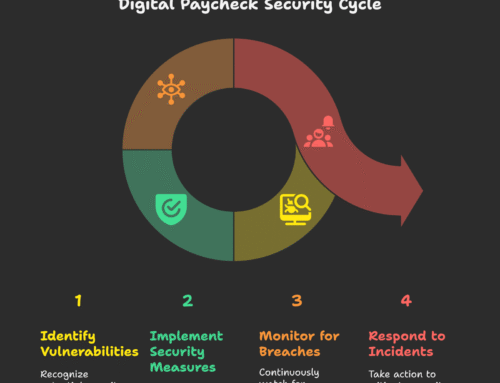Payroll audits play a crucial role in ensuring compliance and accuracy in business finances, particularly for small businesses. Proper payroll practices are not just about compensating employees correctly but also about staying compliant with complex payroll tax laws, federal and state regulations, and company policies. A payroll audit offers an opportunity to examine your company’s payroll processes and make necessary adjustments to avoid costly mistakes.
This guide provides comprehensive insights into preparing for an audit. It covers the importance of payroll audits, how small businesses can ready themselves, what auditors look for, and actionable tips for a smooth audit experience. Let’s dive into how your small business can make payroll audits a manageable, routine part of your operations.
Image by Freepik
Why Payroll Audits Matter for Small Businesses
For small businesses, payroll audits help ensure every aspect of the payroll process aligns with legal requirements. They can prevent costly mistakes, catch errors, and ensure each payroll cycle is efficient, accurate, and compliant.
When done properly, payroll audits can reveal gaps in your payroll process and improve overall efficiency. It helps you identify misclassifications, wage errors, and tax discrepancies before they become larger issues. Here’s why they are a smart move:
- Compliance Assurance: Verifies that payroll practices are compliant with federal, state, and local regulations.
- Error Detection: Identifies payroll errors such as incorrect wage calculations or tax withholding.
- Fraud Prevention: Reduces risk by verifying the authenticity of transactions.
- Process Improvement: Highlights areas where payroll processes can be optimized for efficiency and accuracy.
Steps to Prepare for a Payroll Audit
A payroll audit might feel daunting, but breaking it down into steps makes it easier. Start with organized documentation and clear payroll policies to ensure your audit process is as smooth as possible.
1. Organize Payroll Documentation
The first and most crucial step in preparing for a payroll audit is to gather all relevant documentation. Proper documentation will streamline the audit process and enable the auditor to examine records efficiently.
Essential Documents for Payroll Audits:
- Employee Files: Complete records for each employee, including wage agreements, deductions, and classifications.
- Payroll Registers: A summary of each payroll period, including earnings, deductions, and net pay.
- Tax Filings: Documents for federal, state, and local tax filings, such as W-2, 1099 forms, and quarterly filings.
- Benefit Deductions: Details on benefit deductions like health insurance, retirement contributions, and other voluntary deductions.
Maintaining organized, accurate records provides a foundation for a seamless audit. Having these documents readily accessible will prevent delays and reduce errors during the audit process.
2. Review Payroll Policies
Ensure that your payroll policies reflect current laws and regulations. Reviewing these policies regularly allows you to spot potential compliance issues and adjust accordingly. A few common payroll policies include:
- Frequency of Paychecks: Confirm payment frequency (weekly, biweekly, monthly) matches your state’s payroll laws.
- Employee Classification: Verify that employees are classified correctly to avoid misclassification errors.
- Overtime Calculations: Ensure overtime is calculated accurately according to federal and state laws.
- Deductions and Benefits: Make sure all deductions and benefits are compliant and correctly documented.
It’s also helpful to document and keep up-to-date changes in payroll policies and procedures so everyone involved in payroll is aware of the latest rules.
Conducting an Internal Payroll Audit
Conducting your own audit gives you the chance to address any issues in advance, helping you avoid surprises during an official audit.
1. Verify Payroll Calculations
Calculate earnings, taxes, and deductions for each employee to verify accuracy. This step ensures that wages align with work hours, deductions are correct, and any overtime is accounted for.
2. Reconcile Payroll Bank Statements
Reconcile payroll bank statements against payroll records. Checking that amounts paid match records can help you identify discrepancies, such as overpayments or underpayments before they become issues.
3. Review Employee Classifications
Misclassifying employees is one of the most common errors found during payroll audits. To avoid this, make sure employees are accurately categorized as exempt or non-exempt and that independent contractors are not incorrectly classified as employees.
What Auditors Look for During a Payroll Audit
Understanding what auditors examine can help you better prepare. Here are the main areas auditors typically focus on:
1. Compliance with Payroll Regulations
Auditors will verify that your payroll process aligns with federal, state, and local regulations. This includes compliance with minimum wage laws, proper tax withholding, and overtime rules. Make sure you have documentation proving compliance in each area to streamline this part of the audit.
2. Payroll Record Accuracy
Auditors look for accurate, complete payroll records. Every payroll entry should be verifiable and match the relevant documentation, such as attendance records, timesheets, or employment contracts.
3. Employee Classification Accuracy
Accurate employee classification is essential to avoid legal issues. Auditors will check to see if employees are correctly classified under the Fair Labor Standards Act (FLSA). Misclassification can lead to penalties and back payment liabilities.
Tips for a Smooth Payroll Audit
Ensuring a smooth audit experience is possible with proactive preparation and efficient practices. Here are some strategies to help:
1. Conduct Regular Internal Audits
An internal audit schedule is one of the best ways to stay prepared for a payroll audit. By performing periodic checks, you can spot errors early and maintain accurate records.
2. Automate Payroll Systems
Automating your payroll system minimizes human error and simplifies the record-keeping process. Automation can also streamline tax calculations, employee classifications, and benefits processing, making your audit run more efficiently.
3. Stay Updated on Payroll Laws
Payroll laws change frequently, and staying updated can prevent errors that might raise concerns during an audit. Subscribe to industry news, join payroll or HR associations, and attend seminars to stay informed on changes.
4. Train Payroll Staff
A well-trained payroll team is essential to ensure accuracy. Regular training on legal compliance, tax laws, and payroll software can help prevent errors. When your staff is knowledgeable and well-prepared, they can manage payroll tasks more confidently.
After the Payroll Audit: Steps to Strengthen Payroll Processes
An audit is more than just an assessment; it’s an opportunity to improve. After the audit, use the insights gained to enhance your payroll processes and reduce the risk of future issues.
- Implement Auditor Recommendations: Make changes based on the auditor’s feedback. This could involve updating payroll policies, improving record-keeping, or refining processes.
- Review Payroll Procedures Regularly: Regularly review and update payroll procedures to maintain compliance.
- Set up a Regular Audit Schedule: Make audits a regular part of your business strategy to maintain accurate and compliant payroll practices.
Conclusion
Payroll audits might seem intimidating, but they’re essential for ensuring compliance and improving payroll efficiency. Small businesses can benefit greatly from well-prepared audits by identifying errors, improving accuracy, and staying compliant.
By following these steps, organizing records, and maintaining accurate documentation, small business owners can take control of their payroll processes and foster a more efficient and compliant payroll system. Preparing for an audit doesn’t just protect your business—it also strengthens your payroll management for long-term success and stability.







Leave A Comment